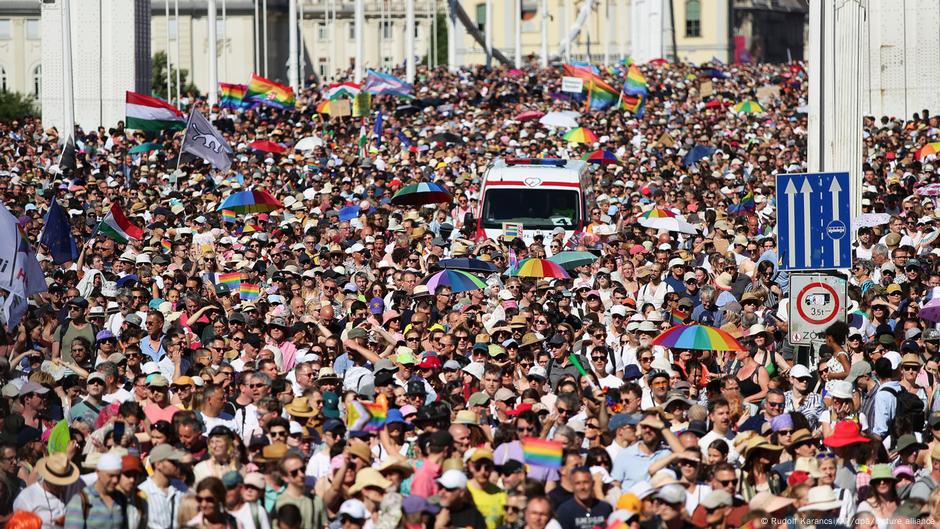Hungarian police said that they will not prosecute marchers in the Budapest Pride parade, despite the event being banned. This year's Pride attracted a record crowd, with organizers reporting over 200,000 participants. Police in Budapest announced Monday that…
Why it matters
- Budapest Pride Parade has seen a historic turnout, showcasing the growing acceptance and support for LGBTQ+ rights in Hungary.
- The decision by police not to prosecute participants highlights a potential shift in the handling of LGBTQ+ events by authorities in a country known for its controversial stance on such issues.
- The event serves as a critical platform for advocacy, pushing for greater visibility and rights for the LGBTQ+ community in a region where discrimination persists.
In a significant development for LGBTQ+ rights in Hungary, the Budapest Pride Parade, which was officially banned this year, proceeded with remarkable support and participation. The event, which saw an unprecedented attendance of over 200,000 individuals, has raised important questions about the legal and social landscape of LGBTQ+ rights in the country.
Hungarian police announced on Monday that they would not take any legal action against the participants of the Pride parade, despite the prior ban imposed on the event. This decision marks a notable departure from previous practices and indicates a growing tolerance towards such gatherings, even in the face of governmental restrictions.
Organizers of the Budapest Pride Parade expressed their gratitude for the overwhelming support from the community, stating that the event was not only a celebration of love and diversity but also a vital demonstration against discrimination and prejudice faced by LGBTQ+ individuals in Hungary. The record turnout underscores a burgeoning movement within the country, challenging the increasingly repressive atmosphere surrounding LGBTQ+ issues.
This year’s parade took place against a backdrop of rising tensions regarding LGBTQ+ rights in Hungary, particularly after the government has implemented laws perceived to target the LGBTQ+ community. The ban on the parade was initially framed as a public safety measure, yet many activists viewed it as an infringement on freedom of expression and assembly.
The police's decision not to prosecute participants has been interpreted by many as an implicit acknowledgment of the community's right to gather and express themselves freely. It also reflects a growing societal acceptance of LGBTQ+ identities, despite the government's hardline stance.
International observers and LGBTQ+ rights advocates have praised the police’s non-intervention approach as a progressive step forward. Many see it as a potential catalyst for further dialogues about LGBTQ+ rights in Hungary, where such discussions have become increasingly contentious.
The Budapest Pride Parade is not only a celebration but also a crucial platform for activism, advocating for equal rights and protections for LGBTQ+ individuals. This year, the event featured a variety of speakers and performances aimed at raising awareness about the challenges faced by the community, particularly within the context of oppressive government policies.
Participants of the parade included a diverse group of individuals, ranging from local residents to international tourists, all united in their call for equality. The vibrant atmosphere was filled with colorful flags, music, and messages of solidarity, showcasing a strong sense of community among attendees.
Despite the government's efforts to stifle LGBTQ+ visibility, the success of this year’s Pride Parade serves as a reminder of the resilience and strength of the community. Activists are hopeful that such events will continue to grow in size and impact, fostering an environment where LGBTQ+ individuals can live openly and without fear of discrimination.
As the Pride movement continues to gain momentum in Hungary and across the globe, the events of this year’s Budapest Pride Parade will be seen as a pivotal moment in the fight for LGBTQ+ rights. The decision by police not to prosecute marchers is a testament to the shifting attitudes within the region and a hopeful indicator of progress in the ongoing struggle for equality. As Hungary navigates its complex relationship with LGBTQ+ issues, the voices of those who participated in the parade will undoubtedly resonate for years to come.











